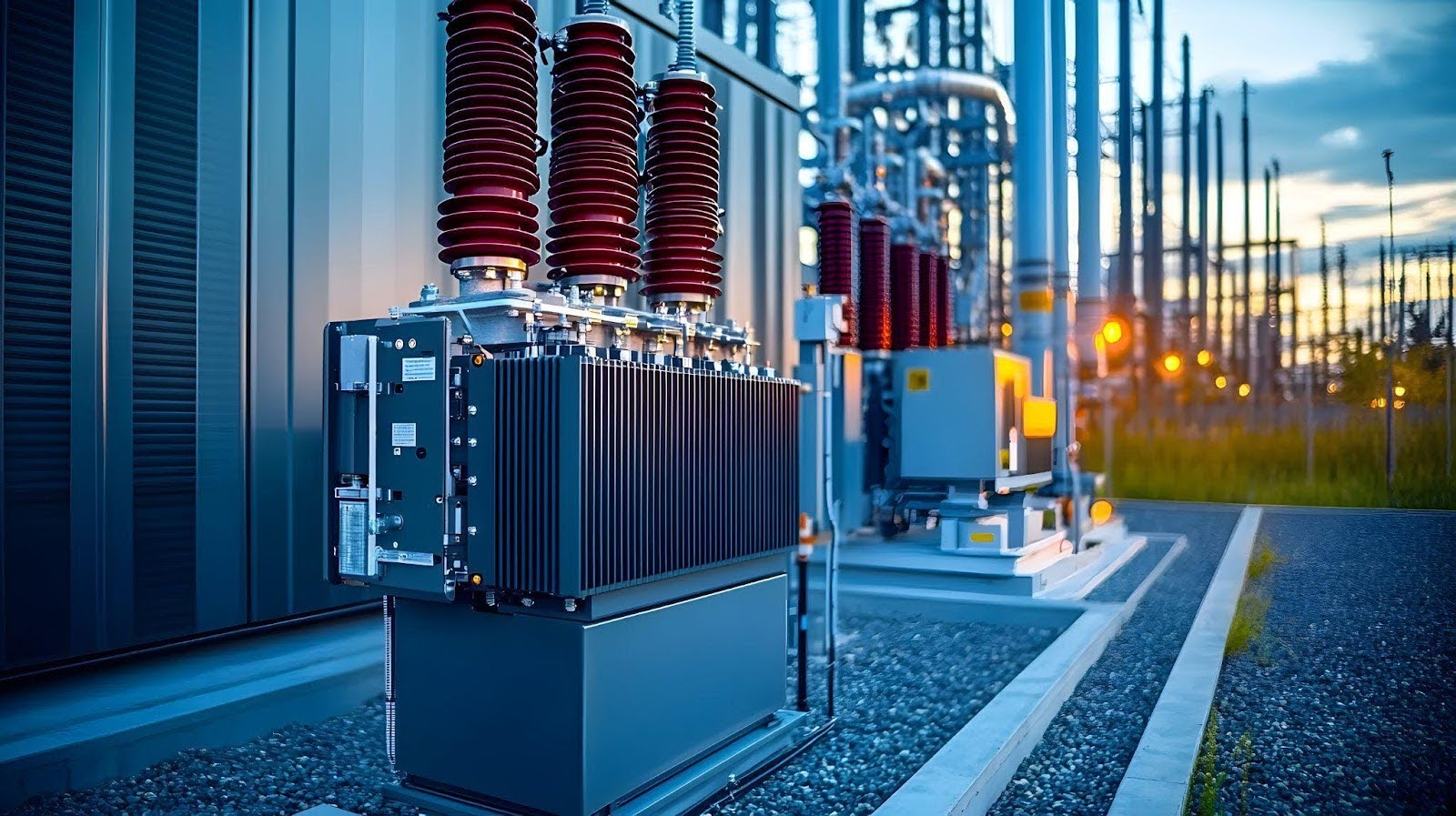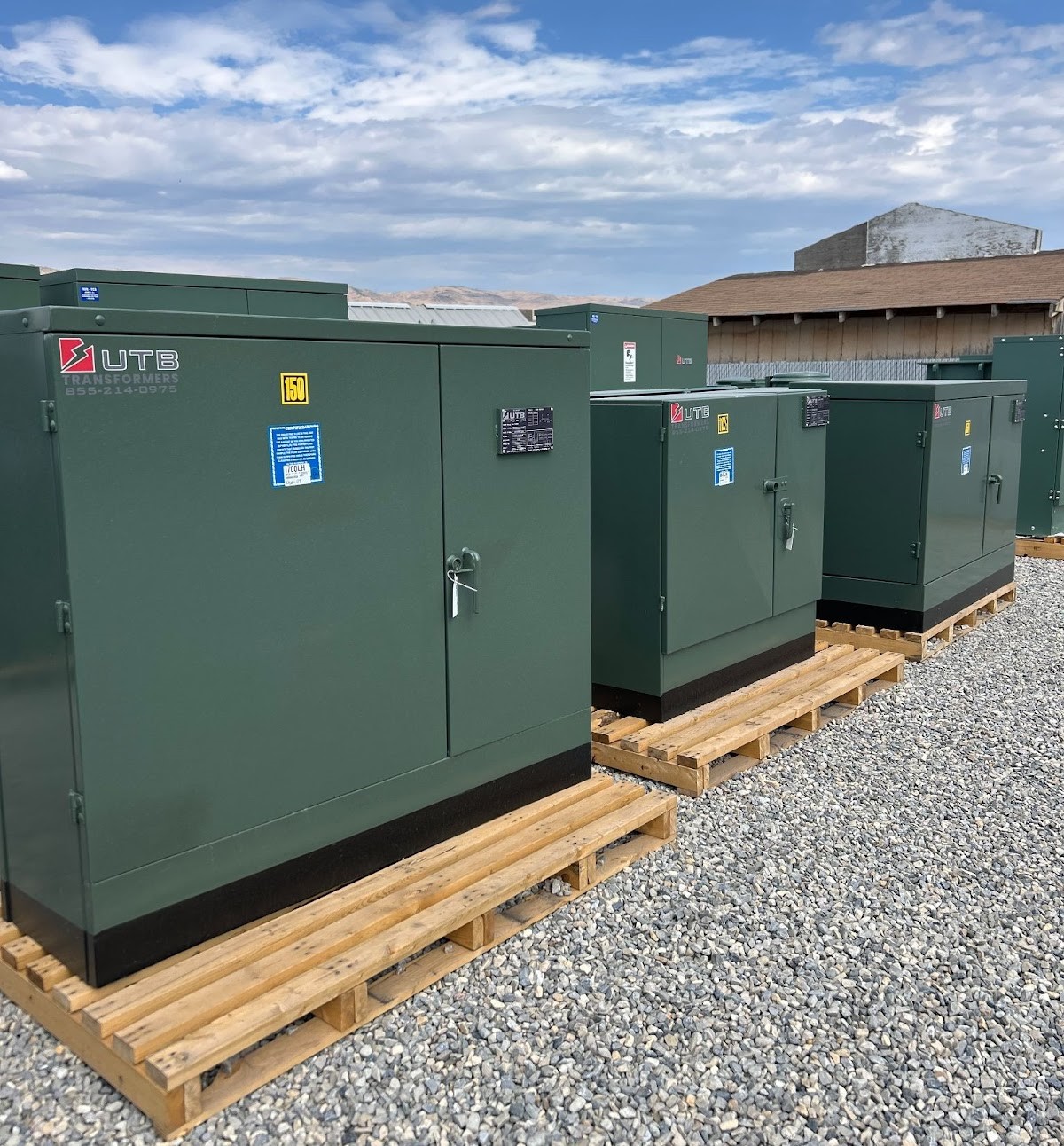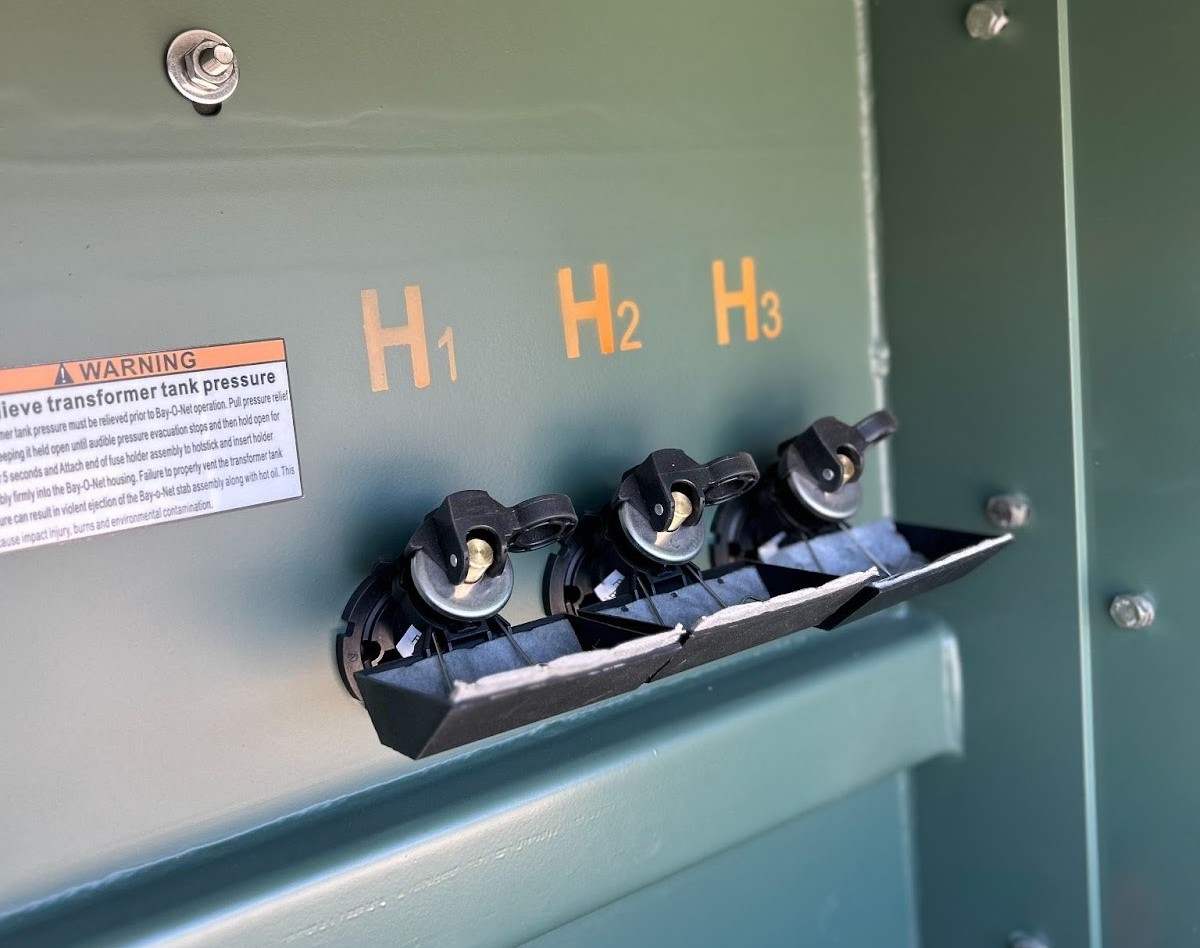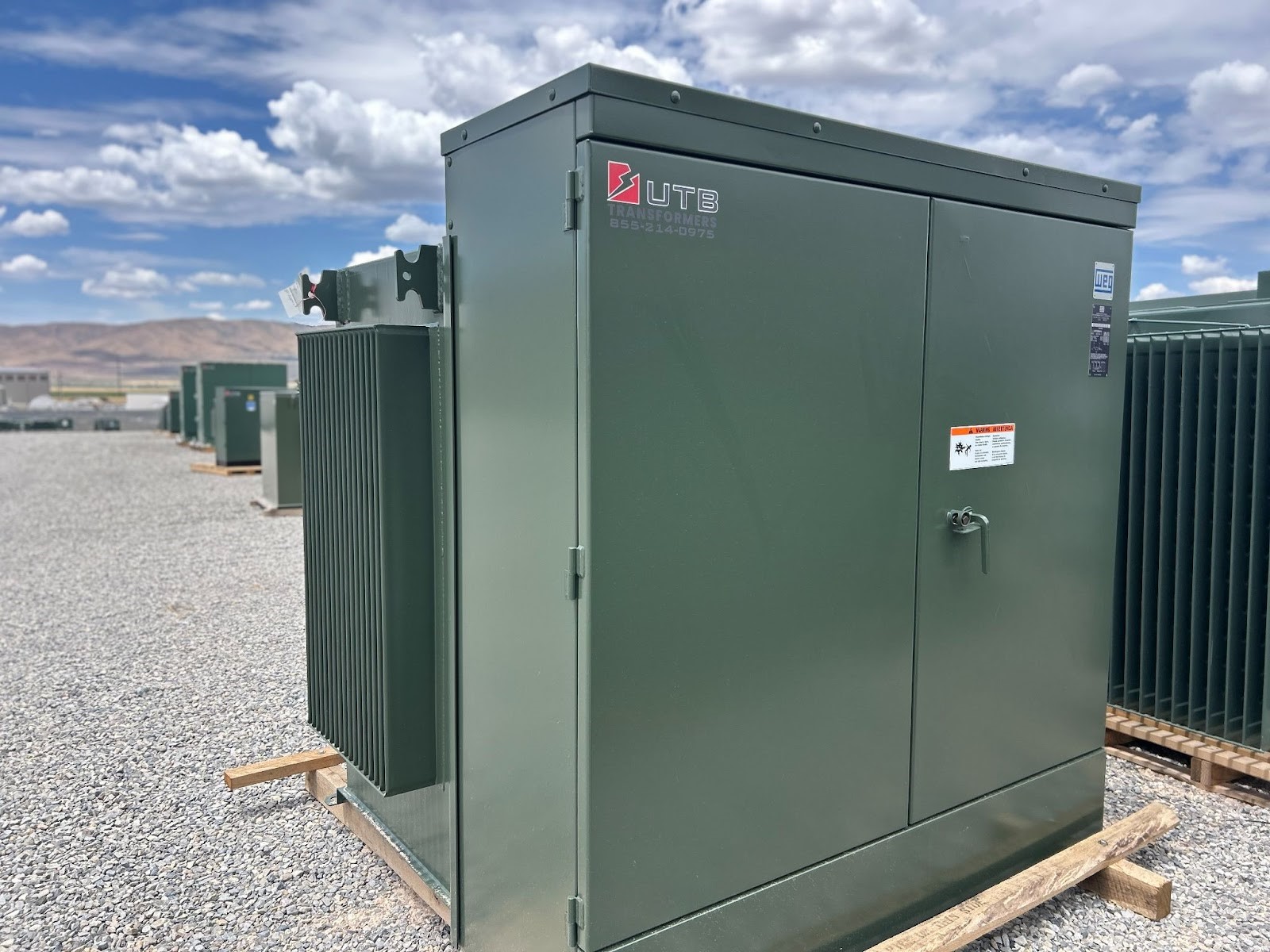Why Pad Mounted Transformer Safety Matters
Pad mounted transformers play a critical role in underground power distribution, ensuring reliable energy flow in residential, commercial, and industrial areas. However, improper handling or accidental contact with these units can lead to serious hazards, including electrocution, arc flashes, and equipment damage. Whether you’re a utility worker, contractor, or simply someone working near one, understanding pad mounted transformer safety is essential.
Identifying Pad Mounted Transformers and Their Risks

Pad mounted transformers are enclosed in locked, tamper-resistant metal cabinets, typically painted green and installed at ground level. They contain high-voltage electrical components that require caution when working nearby. Pad mounted transformers can have certain accessories to make them safer. For example, disconnect switches. To learn more read our recent blog post about pad mounted transformer accessories
Potential Hazards:
- High Voltage Shock: Contact with internal components can be deadly.
- Arc Flash Incidents: Sudden discharge of electrical energy can cause severe burns and injury.
- Explosions and Fires: Faulty equipment or tampering can lead to dangerous malfunctions.
- Environmental Risks: Leaking transformer fluids can pose health and environmental concerns.
Best Practices for Pad Mounted Transformer Safety
1. Maintain a Safe Distance
- Keep a minimum clearance of 10 feet from pad mounted transformers unless authorized to work on them.
- Never lean objects, store materials, or plant shrubs too close, as this can obstruct access and create fire hazards.
2. Follow Lockout/Tagout Procedures

- Utility workers should always follow proper lockout/tagout protocols before servicing a transformer.
- Never attempt to open or access a transformer cabinet unless trained and authorized.
3. Be Aware of Warning Signs
- Transformers are labeled with “High Voltage” warning signs—take them seriously.
- If you hear buzzing, see smoke, or notice damage, report it to the utility company immediately.
4. Avoid Excavation Near Transformers
- Before digging near a pad mounted transformer, call 811 or the local utility service to locate underground power lines.
- Hitting an underground cable can cause power outages, fires, or electrocution.
5. Use Proper Personal Protective Equipment (PPE)
- Utility workers should wear insulated gloves, flame-resistant clothing, safety glasses, and arc flash-rated gear when working on or near transformers.
- For general workers, non-conductive safety boots and gloves can help reduce risks when working nearby.
6. Keep the Public Informed
- Property owners and businesses should educate employees and residents about the dangers of pad mounted transformers.
- Ensure children are taught never to play or climb on transformer enclosures.
7. Report Damage or Unusual Activity
- If a transformer is leaking, sparking, or appears damaged, notify the utility company immediately.
- Report any signs of tampering, vandalism, or unauthorized access to prevent serious hazards.
Emergency Response: What to Do in Case of an Accident
If an incident occurs near a pad mounted transformer:
- Stay Away: Do not approach if there are sparks, smoke, or downed power lines.
- Call Emergency Services: Contact 911 and the utility provider immediately.
- Warn Others: Keep bystanders and vehicles away from the transformer until professionals arrive.
Final Thoughts
Safety around pad mounted transformers whether single phase or three phase isn’t just for utility workers. It’s also crucial for contractors, landscapers, and the general public. By following proper precautions and respecting these high-voltage devices, we can prevent accidents and ensure a safer environment for everyone.
For more in-depth safety guidelines, industry best practices, or high-quality transformers designed for reliability, contact UTB Transformers today. Our team is committed to delivering solutions that prioritize efficiency, performance, and safety.





